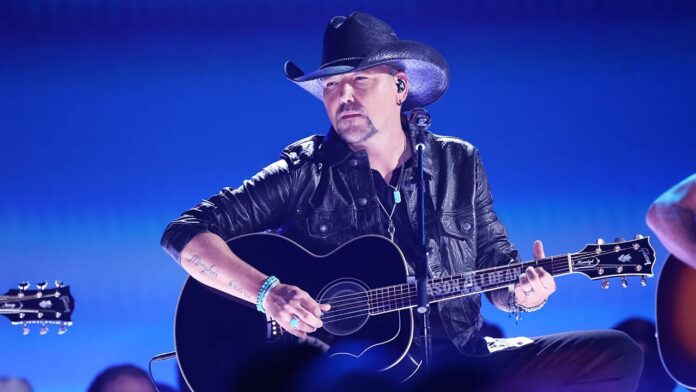Jason Aldean: Reflections on Trauma and Resilience After the Las Vegas Shooting
The Event That Changed Everything
On the night of October 1, 2017, Jason Aldean found himself in a horrific situation while performing at the Route 91 Harvest Festival in Las Vegas. As shots rang out from the Mandalay Bay hotel, chaos ensued, leaving 60 concertgoers dead and over 800 injured. This tragic event was a turning point not just for Aldean, but for countless others impacted by the violence.
The Emotional Aftermath
In a recent conversation on the “Armchair Expert” podcast with Dax Shepard, Aldean opened up about the emotional toll this experience took on him. He vividly recalled the harrowing moments of that night, noting how unprepared he and his team felt. "It was a festival like we’ve done a million times," he shared, highlighting the sense of normalcy shattered by the tragedy.
Once safely home, Aldean faced the emotional wreckage that followed the shooting. “You’re just glad to be home,” he recounted, reflecting on the relief mingled with anxiety as he returned to his family. His oldest daughter, fearful and distressed, encapsulated the level of panic that had permeated their lives.
A Busy Schedule Amid Grief
In the days following the shooting, Aldean’s schedule was packed with appearances and commitments. He made a notable appearance on “Saturday Night Live,” only days after the attack, where he paid tribute to the victims. This was followed by a difficult return to Las Vegas to visit those still recovering in hospitals. “People hadn’t recovered from their wounds yet,” Aldean stated, emphasizing the gravity of the scene he encountered.
During this intense period, he was juggling the emotional weight of the event while performing his duties as an artist, hoping to provide solace and support in a time of overwhelming grief.
A Personal Breakdown
As time passed, the reality of the shooting began to settle in for Aldean. It was after the birth of his son, just two months after the shooting, that he faced a profound breakdown at home. “We kind of had something else to focus on versus watching that on the news every day,” he explained. However, in a moment of solitude, the cumulative weight of the tragedy hit him. He recalled considering the lives lost and the close calls within his own circle during that fateful night, which intensified his feelings of survivor’s guilt.
Embracing Family Support
Despite the emotional turmoil, Aldean chose not to seek therapy for his trauma, instead leaning on his family and close friends for support. “My therapy was me, my wife, my band, all of us that were kind of there,” he shared. Relying on this circle, he found a way to process his feelings and share the burden with those who understood the pain and fear they had experienced together.
Aldean humorously noted his reluctance to seek traditional therapy. “I guess [I’m] too Southern,” he remarked, highlighting a cultural aversion to seeking help outside the family unit. Ironically, he was also actively involved in funding therapy resources for other victims and crew members affected by the shooting.
Facing the Future
Jason Aldean’s reflections reveal a deep understanding of the complexities surrounding trauma and recovery. While he may not have followed conventional routes for healing, his reliance on family and friends underscores the importance of community in the face of adversity. His story is a testament to resilience, showcasing not only the impact of tragedy on individual lives but also the strength that can arise from unity and support in the aftermath of unimaginable loss.
